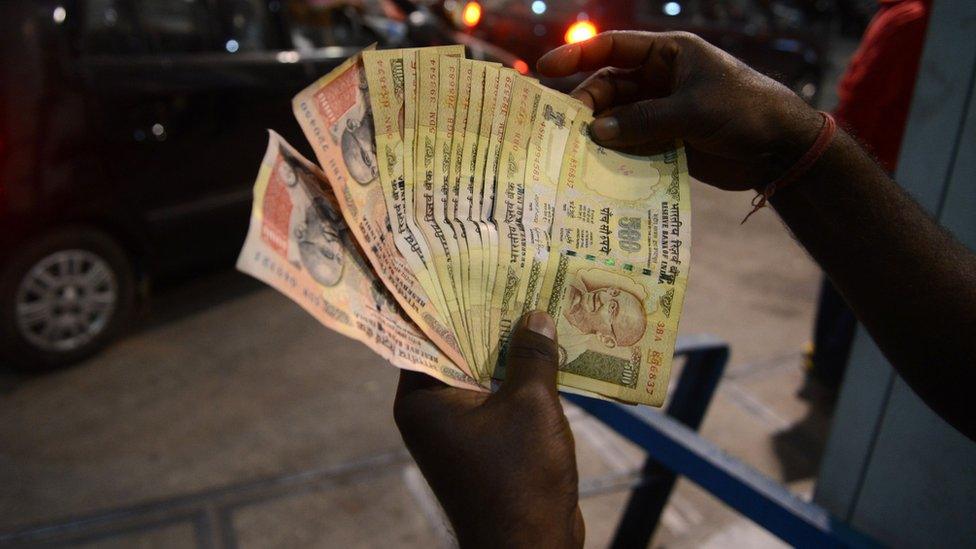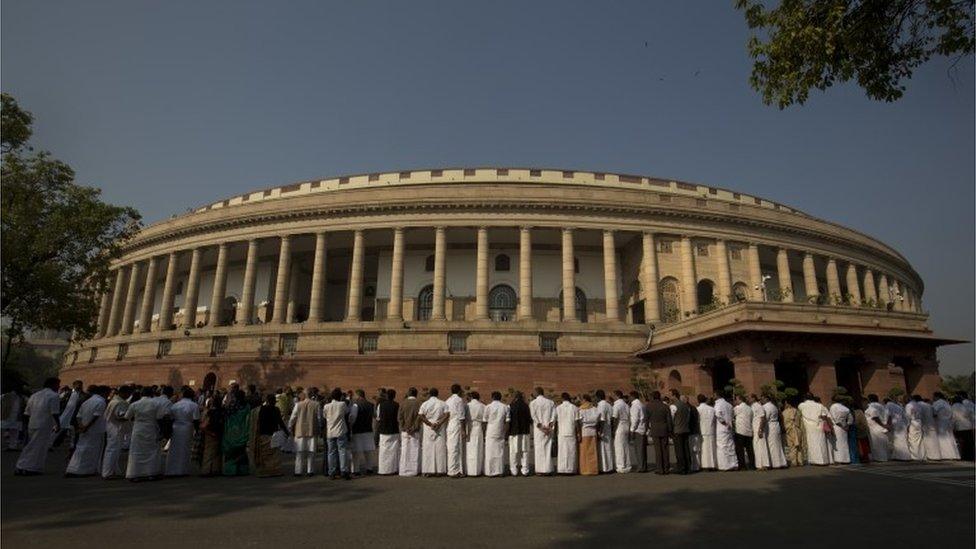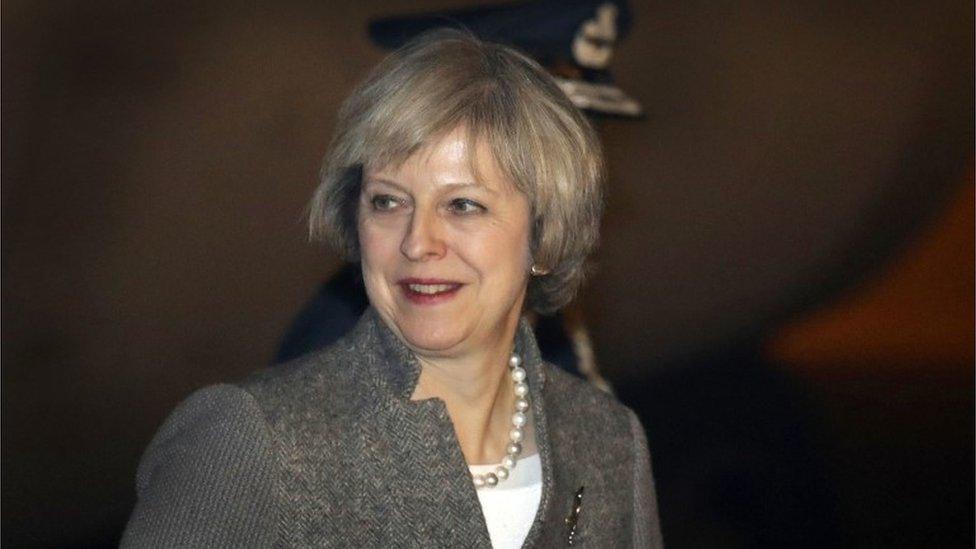India rupee ban: Ex-PM Manmohan Singh rubbishes Modi crackdown
- Published

Former Indian Prime Minister Manmohan Singh has rubbished the government's move to ban two major currency notes, calling it "monumental mismanagement".
Mr Singh, the architect of economic reforms in the 1990s, said GDP would fall "by about 2%" because of the move.
Earlier this month Prime Minister Narendra Modi announced that 500 and 1,000 rupee notes had become illegal as part of a crackdown on corruption.
But scarcity of new notes has brought the economy to a virtual standstill.
Mr Singh, who is credited with opening up India's economy when he was finance minister in 1992, told MPs the move "can weaken and erode our people's confidence in the currency system and in the banking system".
He said it amounted to "legalised plunder".
Earlier, the rupee fell to almost 69 to the US dollar, a record low.
Shilpa Kannan explains why getting cash from an ATM takes so long
"[The] prime minister has been arguing that this is the way to curb black money... I do not disagree with these objectives, but there is monumental mismanagement of which there are no two opinions in the country as a whole," Mr Singh said.
"Even those who say that this measure will do harm or cause distress in the short term but be in the interests of the country in the long run should be reminded of what John Keynes said once, 'In the long run all of us are dead'."
Mr Singh has rarely addressed parliament in the two and a half years since his party lost power.
He and other opposition MPs are insisting that Mr Modi address parliament on the cash crisis, which he has not yet done.

The parties have urged that Monday be marked as a "'day of rage"
There have been chaotic scenes in India ever since the currency ban was announced two weeks ago. People have been queuing up for hours outside banks and cash machines which are fast running out of money.
In some instances the police have had to be called in to manage queues of anxious customers trying to change their savings in banned notes for legal tender.
People have been told they can deposit or change their old notes in banks until 30 December and new 500 and 2,000 rupee notes have been issued. A new 1,000 rupee note will also be issued, but there is no clarity on when.
Until midnight on 24 November Indians are also able to change a small sum of old cash into legal tender as long as they produce ID. This amount was reduced from a total of 4,500 rupees to 2,000 rupees on 17 November.
Anything above this amount needs to be credited to a bank account.
- Published8 November 2016
- Published7 November 2016

- Published7 November 2016